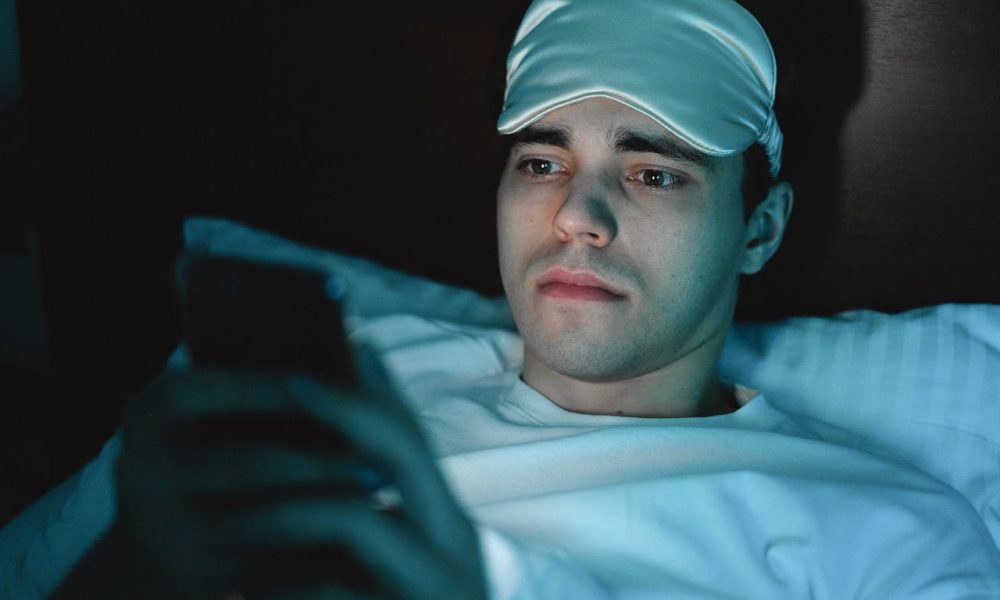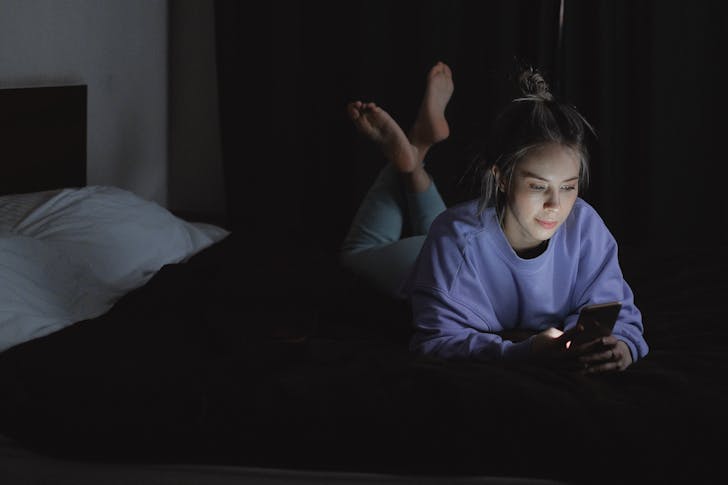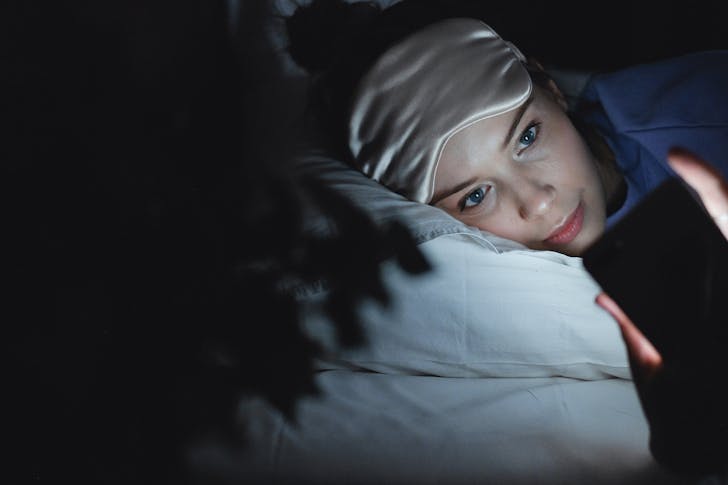
Is Scrolling at Night Keeping You Awake?

If you are lying in bed, endlessly scrolling at night, you might blame your sleeplessness on your phone’s bright screen. But is the blue light really what is keeping you from dozing off? While it is often said that blue light disrupts sleep, experts are finding that the real story is a bit more complicated.
It turns out that there is more to it than just the color of the light. The way screens engage your brain and body could play an even bigger role in disrupting your sleep cycle.
The Truth About Scrolling at Night and Your Sleep
Scrolling at night can indeed interfere with your sleep, but perhaps not for the reasons you would expect. Blue light from screens has gained a reputation for impacting sleep cycles because it mimics daylight, tricking the brain into staying alert.

Production / Pexels / According to experts, sleep is much more complex than just the presence of blue light coming out of your phone at night.
Our eyes are sensitive to a range of light wavelengths, not only blue. While blue light does stimulate the brain to remain alert, even red or warm light can influence sleep if the exposure is too long or too bright.
Peirson explains that it is really the brightness of the screen and the duration we are exposed to it that matters most. Surprisingly, smartphone screens are not even that bright compared to room lights or daylight. This suggests that other factors of late-night scrolling may contribute to disrupted sleep patterns.
Why Blue Light Isn’t the Only Issue?
We often hear that blue light is the primary reason we are up late after scrolling at night, but there is more to it. Daylight, which is abundant in blue light, naturally helps us stay awake and alert during the day. But in the evening, when our bodies are supposed to wind down, continuous exposure to any bright screen, regardless of its color, can keep us awake.
While blue light gets the blame, it is just one part of the problem. The interactive nature of smartphones means we are often mentally engaged and focused even as we try to relax. The brain needs time to slow down and transition into a restful state, something that active scrolling doesn’t help with.
How Scrolling at Night Disrupts Your Body’s Natural Rhythm
The body’s natural sleep rhythm, or circadian rhythm, relies on cues from light and darkness to regulate sleep. When you are scrolling at night, your brain may confuse the light from your screen with daylight, signaling you to stay awake longer. This “awake” signal delays the production of melatonin, the hormone that helps you feel sleepy. The result? It becomes harder to wind down and fall asleep naturally.

Sh Production / Pexels / Research suggests that spending time on screens right before bed can push back your circadian rhythm, leaving you more alert than you’d like.
Thus, this effect can be particularly disruptive if you are using your phone for activities that require concentration, like catching up on emails or watching intense shows. Even if the blue light is somewhat filtered, your body’s natural rhythm is still sensitive to the brightness and mental engagement of screen time.
Can Blue-Light Blocking Filters Help?
To combat the effects of blue light, many smartphones offer “night mode” settings or blue-light-blocking filters that promise to reduce the impact on your sleep. These features shift the color of your screen to warmer tones, but they may only help to a limited extent. Blue-light filters reduce some of the effects of blue wavelengths. But they don’t completely block them, and they don’t address other screen-related factors that can keep you alert.
Peirson and other sleep experts suggest that reducing screen brightness and setting screen time limits are more effective than relying on blue-light filters. While these filters may help slightly, the real benefit comes from minimizing the time spent on screens before bed. Reducing brightness, putting your phone in a dim setting, or simply placing it face-down can all help to lessen the stimulating effects of screen exposure.
More in Lifestyle
-
`
Simple Steps to Make the Philadelphia Cheesecake Recipe
If you’re looking to make a dessert that never fails to impress, this Philadelphia cheesecake recipe is your go-to. With its...
August 21, 2024 -
`
How Much Does It Cost to Travel in Europe?
Dreaming of strolling along the Seine in Paris, exploring ancient ruins in Rome, or sipping sangria on a Spanish beach? Europe’s...
August 13, 2024 -
`
Mahershala Ali and Amatus-Sami Karim’s Decade-Long Marriage
Who is Mahershala Ali married to? This question often arises when discussing the acclaimed actor. Mahershala Ali, the talented and versatile...
August 5, 2024 -
`
Is It Normal to Be Sore After a Massage? 9 Ways to Relieve Soreness
Is it normal to be sore after a massage? Many people schedule a massage to drift into a state of relaxation...
August 3, 2024 -
`
Delicious Pescatarian Breakfast Ideas
Exploring new breakfast ideas can be a delightful way to start your day, especially when they align with a pescatarian diet....
July 24, 2024 -
`
Is Phuket Worth Visiting in 2024?
Phuket, Thailand’s gem of an island, has long attracted travelers with its pristine beaches, lively nightlife, and cultural treasures. The question...
July 19, 2024 -
`
What is the Best Way to Melt Chocolate for Any Recipe?
Chocolate is a beloved ingredient in many desserts, from ganache and cake batters to decadent drizzles over ice cream. Knowing what...
July 12, 2024 -
`
How to Plan a Backpacking Trip Like a Pro in 16 Steps
Planning a backpacking trip can be as thrilling as it is daunting, especially if you’re keen to make every moment count....
July 5, 2024 -
`
How to Build Fast-Twitch Muscles in 5 Simple Steps
Have you ever wondered how to build fast-twitch muscles? These powerful muscle fibers are key to explosive strength and speed. Whether...
June 20, 2024















You must be logged in to post a comment Login